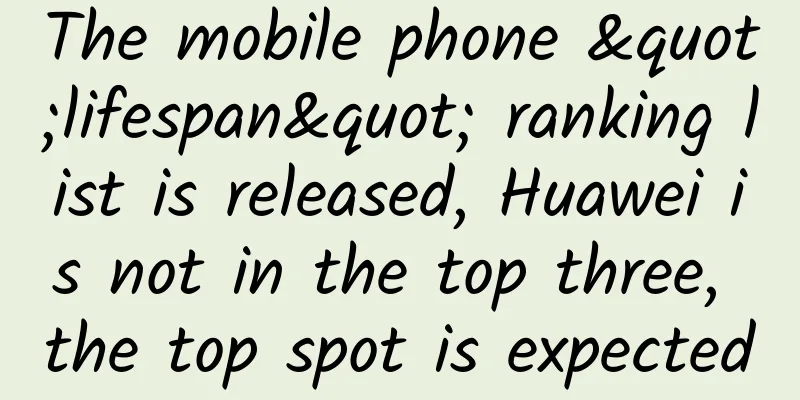Why do I always feel my heart pounding?

|
Oops, I feel excited again! In life, many people have experienced "heart pounding", and some people experience this frequently. In modern society, staying up late has become a daily routine for many people, but what comes with it is that you often feel your heartbeat speeding up, which makes people worry that there is something wrong with their heart... What is the reason for "heart pounding"? Does staying up late for a long time increase the risk of heart disease? What are the distress signals of the heart? The editor will highlight the key points for you! 1 What is the “heart pounding” feeling? The symptom of "beating heart" is common in various types of arrhythmias, such as tachyarrhythmias and ectopic arrhythmias. The causes of arrhythmia include physiological factors and pathological factors. Physiological arrhythmias are more common in normal people when they smoke, drink large amounts of coffee, strong tea, drink alcohol, engage in physical activities, are emotionally excited, or nervous. Generally, no special treatment is required and the symptoms will disappear on their own. Pathological arrhythmias include many different types, such as atrial premature beats, ventricular premature beats, atrial fibrillation, atrial flutter, sinus tachycardia, supraventricular tachycardia, ventricular tachycardia, etc. Arrhythmias can be caused by some pathological factors, such as organic heart lesions, fever, hyperthyroidism, anemia, shock, myocardial ischemia, congestive heart failure, etc. Pathological arrhythmias require active treatment of the underlying disease, and medication or interventional therapy may be required when necessary. 2 Will staying up late for a long time increase the risk of heart disease? Abnormal sleep rhythm will affect the function of the body's autonomic nervous system, including the sympathetic and parasympathetic nervous systems. The sympathetic nervous system can enhance the body's response under stress: increase heart rate, increase blood pressure, dilate trachea, enlarge pupils, etc. The parasympathetic nervous system is responsible for maintaining many physiological functions of the body in normal state: slowing down the heart rate, lowering blood pressure, promoting gastrointestinal motility, etc. When staying up late, the sympathetic nerves of the human body are in an excited state. Over time, the burden on the heart increases, the body's self-regulation ability is impaired, and the risk of various heart diseases increases. 3 What are the heart's distress signals? The most common symptoms of heart system diseases include chest tightness, shortness of breath, palpitations, shortness of breath, reduced activity tolerance, pitting edema of the lower limbs, and pain in the left shoulder and back. Many non-specific manifestations are easily overlooked because the symptoms do not directly reflect the heart. For example, there may be unexplained tightness in the throat, nausea, loss of appetite, toothache, fatigue, mood changes, etc. without obvious causes in the recent period. If the above symptoms occur, you should pay attention to them, seek medical treatment and intervention in time to avoid delaying the disease. 4 How to protect heart health? 1. Maintain a good lifestyle. Quit smoking and drinking; maintain a good attitude. Long-term negative emotions can cause high blood pressure, weight gain, and harm heart health; eat a light diet and eat more fresh vegetables and fruits; control weight; combine work and rest, avoid overwork, and get enough sleep. 2. Exercise appropriately. A reasonable amount of exercise can increase the heart's tolerance and myocardial contractility. 3. Control primary diseases, such as hypertension, diabetes, hypercholesterolemia, hyperthyroidism, anemia, organic heart disease, etc. 4. Regular physical examinations: Early detection and early treatment directly affect the prognosis of the disease. Source: Science China (ID: Science_China) Expert of this article: Zhao Jing, attending physician, Department of Geriatrics, Third Medical Center, PLA General Hospital This article was reviewed by Li Jiehui, Associate Chief Physician, Department of Cardiac Surgery, Fuwai Hospital, Chinese Academy of Medical Sciences Producer: Liu Hong Chen Jingchun Editor: Zhang Linglin Proofreading: Liang Tiantian, Cai Mengxiao, Yan Hai |
<<: Musk participates in "saving the earth"! NASA launches the first planetary defense test mission
>>: Why do some people always pick their toes? And then smell them?
Recommend
Huang Tiejun | The rise of machines and boundless intelligence
Today we are not going to answer the question of ...
As flu season approaches, how should we get vaccinated?
Produced by: Science Popularization China Author:...
Bing Dwen Dwen did a backflip in space? Can liquid be used to build a bridge? Here comes the precious footage of humans giving a lesson in space
Expert of this article: Liu Yan, Space Applicatio...
How do small businesses do marketing promotion?
Attracting users and increasing purchase return r...
Congratulations to Chinese scientists! New breakthroughs in 2023
A century of change Technological innovation is t...
Zhao Xiaoming's Basics: New Psychoanalysis - 100 Core Concepts Audio Course Baidu Cloud Download
Zhao Xiaoming's Basics: New Psychoanalysis - ...
It is better to consider iPhone 6s when buying an Android flagship. Do you agree?
If the fight continues this year, the iPhone 6s s...
Is Google's return to China a pipe dream or a comeback?
On October 20, American Internet giant Google ann...
The pattern of two kitchen appliance giants is still difficult to shake: it is difficult for home appliance companies to cross-border market and win hearts
Compared with large household appliances, small h...
How to divert Douyin traffic to the private traffic pool?
Traffic acquisition has always been a difficult p...
Logical structure thinking training camp course
Improve the clarity of thinking and problem-solvi...
Douyin Dou+ sales: I spent 30,000 yuan to gain the experience of marketing!
1. What is the use of dou+? 1. Become popular (in...
China Association of Automobile Manufacturers: Analysis of Chinese brand passenger car sales in January 2023
According to statistics and analysis by the China...
Growth Hacking: How to Increase User Conversions?
Growth Haker is no longer a strange term. The ori...









